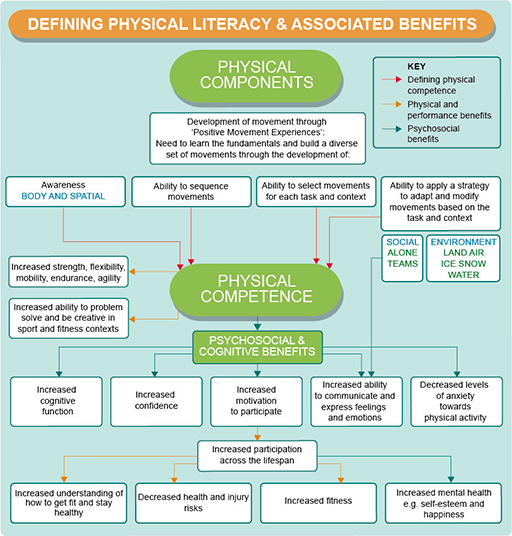3 Why physical activity is important for young children
‘We learn more physical skills in our first five years than at any other time in our lives. Therefore, it’s important that young children have lots of time to practise and develop these skills.’ (British Heart Foundation, 2012, p. 13)
Listen to Audio 1 where this week’s author Ben Langdown describes why physical activity is important to young children. Then study the infographic in Figure 5, which defines physical literacy and the associated benefits of physical activity for years 0-5.
Transcript: Audio 1
Now have a go at Activity 2.
Activity 2
Consider what you listened to in Audio 1, what you took from viewing Figure 5 Defining physical literacy and associated benefits and the quotation from the British Heart Foundation above.
Make a list of three ways, that are relevant to your engagement with children, in which you could infuse/apply the benefits of physical activity for young children into your context. What reflections may you pass on to others, i.e. the children themselves or the adults supporting physical development?
You may also choose to reflect on what relevant changes you have seen in any early years settings you have been involved with over the years (e.g. the levels of physical activity, changes in confidence of children and practitioners to engage in physical activity, etc.).
Finally, add any further reflections that directly answer the question – why is it important to support the development of fundamental movement skills?

